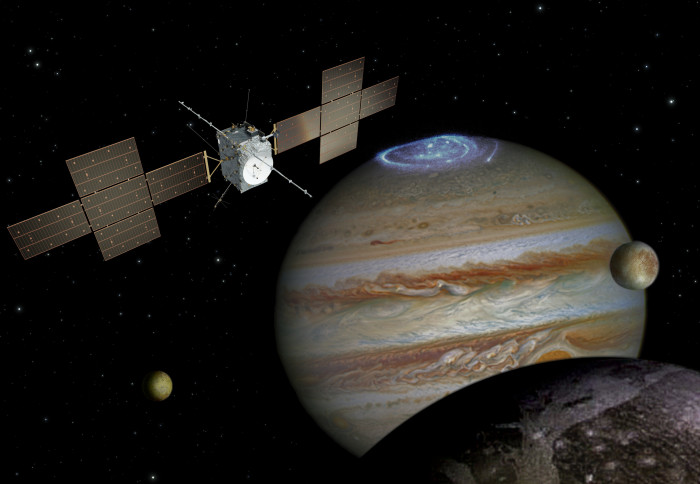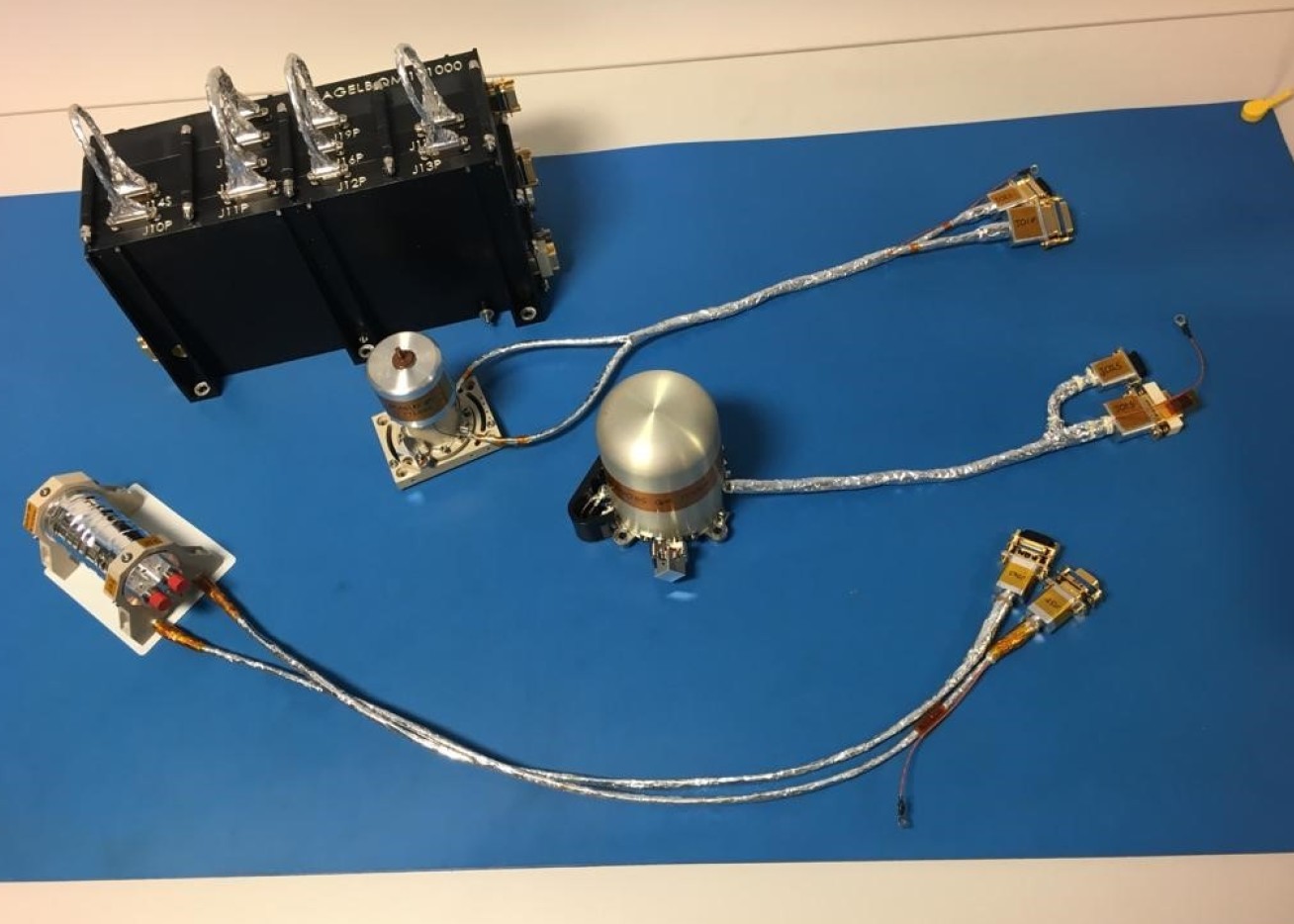
An illustration of the JUICE spacecraft in orbit around Jupiter
Global S&T Development Trend Analysis Platform of Resources and Environment
| Jupiter mission and AI acceleration: News from the College | |
| admin | |
| 2020-09-25 | |
| 发布年 | 2020 |
| 语种 | 英语 |
| 国家 | 英国 |
| 领域 | 资源环境 |
| 正文(英文) | 
An illustration of the JUICE spacecraft in orbit around Jupiter 
Here’s a batch of fresh news and announcements from across Imperial. From an Imperial-designed magnetometer for listening to Jupiter’s icy moons, to a new method for accelerating drug discovery with AI, here is some quick-read news from across the College. Getting ready for Jupiter
The Department of Physics staff have delivered to Airbus and the European Space Agency a near-final model of an instrument for the JUpiter ICy moons Explorer (JUICE), which is due to launch in mid-2022. Imperial’s magnetometer instrument will measure the magnetic environment the spacecraft encounters, particularly the magnetic field of the moon Ganymede. Beneath its thick icy crust, Ganymede is suspected to have an ocean, which the magnetometer can help to characterise. Despite lockdown challenges, the Imperial team this week delivered the ‘qualification model’ (QM) of the magnetometer, which will go through rigorous testing on board the spacecraft as it goes through thermal and vacuum tests to ensure it will survive the journey and orbit at Jupiter. The team are now preparing the final ‘flight model’, which will be delivered in January 2021 and will replace the QM instrument on the spacecraft. Read more about Imperial’s involvement in the JUICE mission. Leader in management thinking
Professor George Yip, Emeritus Professor of Marketing and Strategy at the Business School, has been inducted into the Thinkers50 Hall of Fame – a body which recognises the achievements of distinguished thinkers from the world of management. His research looks at how companies need to develop more globally integrated strategies to be successful. Professor Yip’s work also addresses how China is moving from imitation to innovation and what Western companies can learn from this phenomenon. The mission of the Thinkers50 is to identify, rank and share the best management ideas and acknowledge experts who have made valuable contributions to management thinking. Accelerating drug discovery with AI
Machine learning methods that examine images of the screening are increasingly being used, but they are not very effective when cells vary greatly and often require time-consuming training by humans that teach the algorithm what it is looking at. Now, researchers from Imperial and Google Research have developed an algorithm that requires less human input. They tested it with human malaria parasites, finding that it reliably sorted images into parasite life stages and grouped potential drugs by their mechanism of action. Read the full paper in Science Advances: A machine learning approach to define antimalarial drug action from heterogeneous cell-based screens – Want to be kept up to date on news at Imperial? Sign up for our free quick-read daily e-newsletter, Imperial Today.
|
| URL | 查看原文 |
| 来源平台 | Imperial College London |
| 文献类型 | 新闻 |
| 条目标识符 | http://119.78.100.173/C666/handle/2XK7JSWQ/296178 |
| 专题 | 资源环境科学 |
| 推荐引用方式 GB/T 7714 | admin. Jupiter mission and AI acceleration: News from the College. 2020. |
| 条目包含的文件 | 条目无相关文件。 | |||||
| 个性服务 |
| 推荐该条目 |
| 保存到收藏夹 |
| 查看访问统计 |
| 导出为Endnote文件 |
| 谷歌学术 |
| 谷歌学术中相似的文章 |
| [admin]的文章 |
| 百度学术 |
| 百度学术中相似的文章 |
| [admin]的文章 |
| 必应学术 |
| 必应学术中相似的文章 |
| [admin]的文章 |
| 相关权益政策 |
| 暂无数据 |
| 收藏/分享 |
除非特别说明,本系统中所有内容都受版权保护,并保留所有权利。
修改评论